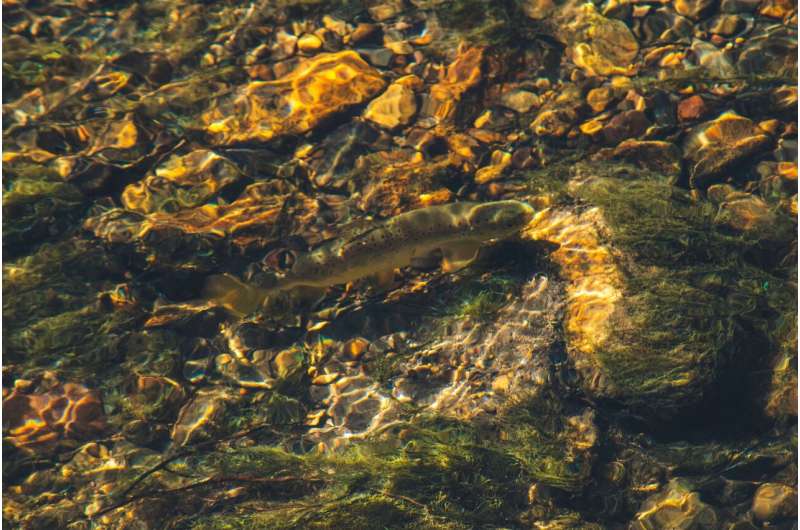How future fish stocks are affected by phytoplankton and iron uptake

Research by the University of Liverpool sheds new light on the complex relationship between phytoplankton, iron uptake, global warming and fish stocks which is essential in helping policymakers develop effective conservation and fisheries management policies under climate change.
Using a novel combination of ocean and ecosystem numerical models, researchers were able to demonstrate how changes in the productivity of phytoplankton linked to differences in their iron uptake combines with the impact of warming to control future changes in fish stocks.
The results are expected to feed into the ongoing IPCC sixth assessment report and will stimulate new efforts to better understand how phytoplankton acquire iron from seawater and their response to a changing environment.
Published in Global Change Biology, the research was led by Professor Alessandro Tagliabue from the University of Liverpool's School of Environmental Sciences. He said "Using these two numerical models together we found that the impact of climate change on fish could change by 50-80%. This result was striking as we could not differentiate between skill of the different model experiments using available data, despite them leading to such extreme future scenarios for regional fisheries
"This is important as policy makers must understand how future climate change may affect fish stocks in order to implement effective management strategies crucial to the delivery of the United Nations Sustainable Development Goals"
"Overall, our results raise significant new challenges for policymakers in managing the impact of climate change on fisheries and illuminate the degree of interconnectedness that underpins ocean ecosystems and their response to change."
Climate change assessments of fisheries rely on complex numerical models of the earth system that consider different shared socioeconomic pathways and their holistic impact on the physics, chemistry and biology of the ocean.
One of the most important impacts of climate change in the ocean is the negative effect on fish stocks. Fish provides crucial sources of animal protein for millions of people worldwide and support livelihoods in coastal communities, most notably in the poorest countries.
In the absence of fishing, the abundance of fish relies largely on the activity of microscopic plants, known as phytoplankton, who provide energy to the base of marine food chains.
The new study revealed a poor understanding of the way models represent how phytoplankton acquire iron from seawater and that this cascades up the marine food chain in the eastern equatorial pacific (a hot spot for fish catch).
Significantly, without significantly changing the model performance in the historical period, subtle changes in iron uptake led to a reversal of the projected impact of climate change on total animal biomass.
The recent in a Changing Climate painted a stark picture regarding the impact of climate change on marine ecosystems in the tropical oceans, with declines in the productivity of phytoplankton and marine animal biomass. These declines will be most significantly felt by maritime nations with poor socioeconomic statuses, leading to widening equity gaps.
The paper, "An iron cycle cascade governs the response of equatorial Pacific ecosystems to climate change," is was published in Global Change Biology.
More information: Alessandro Tagliabue et al. An iron cycle cascade governs the response of equatorial Pacific ecosystems to climate change, Global Change Biology (2020). DOI: 10.1111/gcb.15316
Journal information: Global Change Biology
Provided by University of Liverpool




















